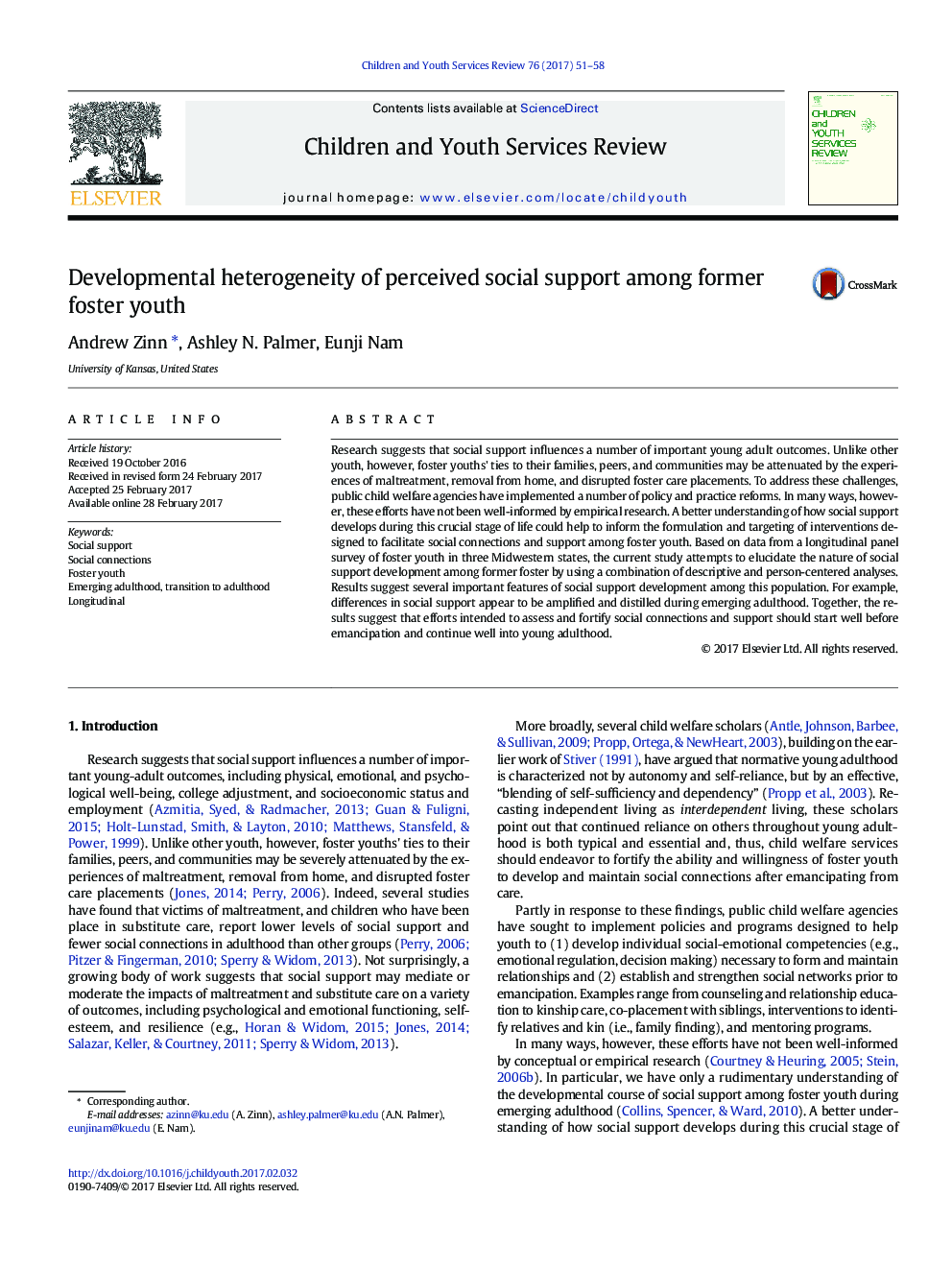| Article ID | Journal | Published Year | Pages | File Type |
|---|---|---|---|---|
| 4936415 | Children and Youth Services Review | 2017 | 8 Pages |
Abstract
Research suggests that social support influences a number of important young adult outcomes. Unlike other youth, however, foster youths' ties to their families, peers, and communities may be attenuated by the experiences of maltreatment, removal from home, and disrupted foster care placements. To address these challenges, public child welfare agencies have implemented a number of policy and practice reforms. In many ways, however, these efforts have not been well-informed by empirical research. A better understanding of how social support develops during this crucial stage of life could help to inform the formulation and targeting of interventions designed to facilitate social connections and support among foster youth. Based on data from a longitudinal panel survey of foster youth in three Midwestern states, the current study attempts to elucidate the nature of social support development among former foster by using a combination of descriptive and person-centered analyses. Results suggest several important features of social support development among this population. For example, differences in social support appear to be amplified and distilled during emerging adulthood. Together, the results suggest that efforts intended to assess and fortify social connections and support should start well before emancipation and continue well into young adulthood.
Related Topics
Health Sciences
Medicine and Dentistry
Perinatology, Pediatrics and Child Health
Authors
Andrew Zinn, Ashley N. Palmer, Eunji Nam,
